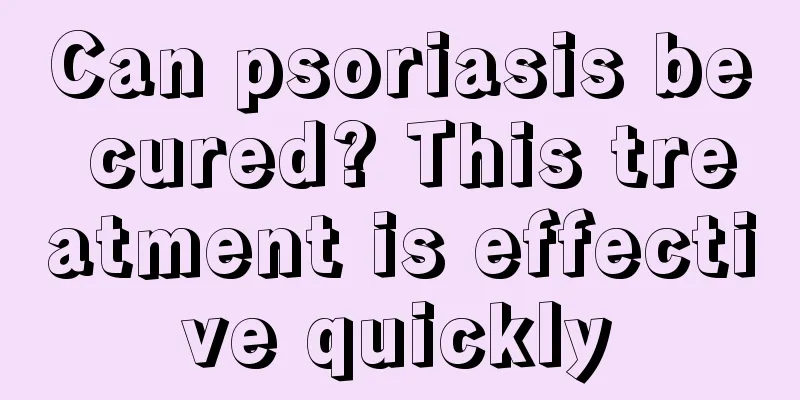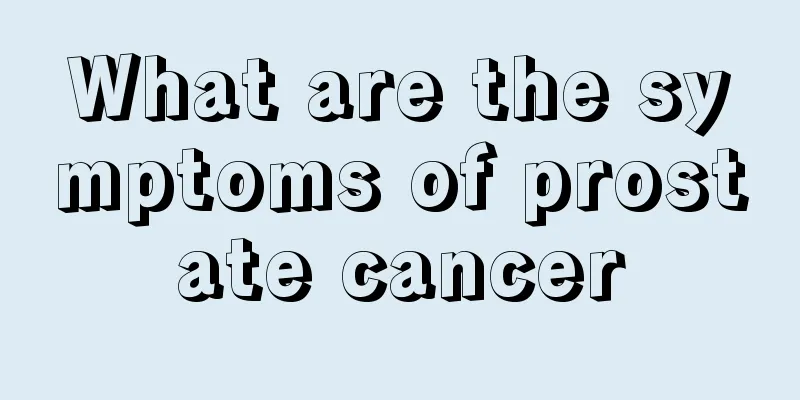Can psoriasis be cured? This treatment is effective quickly

|
Psychological stress, genetics, infection, etc. can all trigger the formation of psoriasis. Once you suffer from this disease, it will be very difficult to cure it. At present, this disease is an "immortal cancer" that can only achieve short-term therapeutic effects but cannot prevent recurrence. 1. Can psoriasis be cured? Many psoriasis patients are very anxious, as various information media say that the disease cannot be cured and is an "immortal cancer." There are so many treatments and methods that it’s hard to tell which one to listen to. Indeed, there are many ways to treat psoriasis, but there is currently no cure. Those advertisements that claim to be able to "cure psoriasis" are all deceptive. ?? Currently, various treatments can only achieve short-term effects but cannot prevent recurrence. Because psoriasis does not pose a great threat to your health, you should not blindly pursue thorough treatment and use drugs that may cause serious toxic side effects (such as oral hormones or so-called "pure Chinese medicine" preparations containing hormones). Doing so will worsen the condition and induce erythroderma or pustular psoriasis. Psoriasis can be controlled and relieved in the long term through standardized treatment. Chronic diseases should be treated slowly. 2. How do doctors generally treat psoriasis? Since this disease is a chronic recurrent disease, treatment should focus on long-term treatment. Standard treatment methods mainly include local external medication and systemic medication (oral medication or injection) as well as physical therapy. Systemic treatment is mainly used for patients with larger skin lesions, while local treatment should be considered first for patients with small lesions and stable condition. Due to the recurrent nature of this disease, single treatment can easily lead to dependence, drug resistance or poor therapeutic effect. Therefore, rotation therapy and combination therapy are generally used clinically. Rotation therapy refers to the alternating use of different types of drugs and treatments to reduce the risk of single treatment and improve treatment responsiveness, while combination therapy refers to the simultaneous use of different treatments or drugs with the goal of shortening the course of treatment or reducing side effects during treatment. Doctors and patients should be patient in treatment and communicate fully during treatment. They must take into account long-term safety, efficacy and convenience at the same time and avoid non-standard treatment concepts and methods. |
<<: Is psoriasis contagious? Dietary conditioning is effective
>>: Symptoms of psoriasis, different manifestations at different times
Recommend
How to wash off ink stains on clothes
Basically, we need to change clothes every day in...
Is biological immunotherapy for prostate cancer effective?
When men hear that they have prostate disease, it...
Gastric cancer may also present with upper abdominal pain
Gastric cancer may also cause upper abdominal pai...
Eight first aid methods for common minor injuries in the home
1. Nose bleeding Do it now: Lean forward slightly...
The effect of a glass of salt water every morning
Many friends have the habit of drinking a glass o...
Will it hurt to clear the fallopian tubes?
Fallopian tube obstruction is a common and freque...
What does eye reflection mean?
In life, eye reflection is a common phenomenon in...
How to treat advanced laryngeal cancer
Laryngeal cancer is not common among systemic tum...
Sticky eyes and blurry vision?
In daily life, we sometimes experience sticky eye...
How to wash tea stains on clothes?
People usually drink various kinds of tea. Some t...
Bottle sterilizer
The Year of the Horse is an auspicious year, and ...
The efficacy and function of washing feet with mugwort
Many people usually have the habit of washing the...
Does cigar contain nicotine?
Cigars are a more elegant way of smoking. Since s...
What are the risk factors for prostate cancer
There are many factors that cause prostate cancer...
What can I eat to relieve the bitter taste in my mouth
The mouth needs to eat a variety of things every ...









